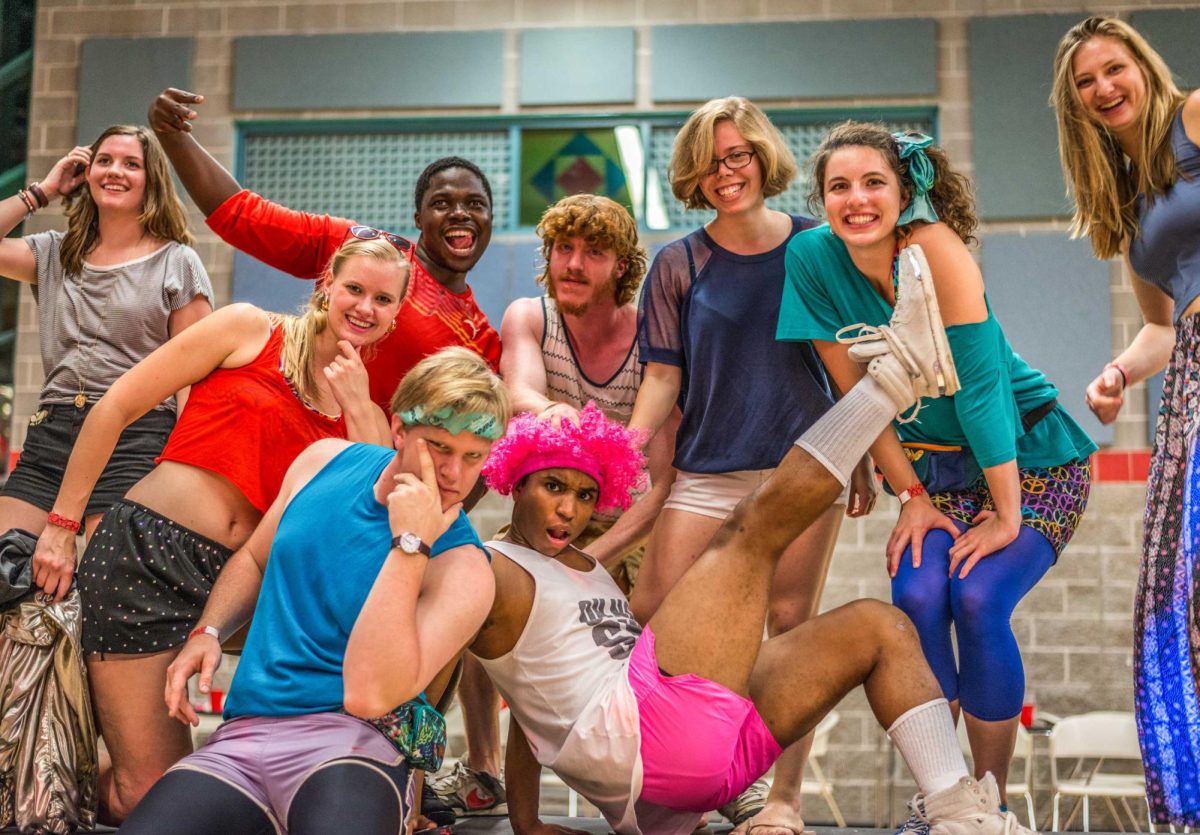Living in a town dubbed the “Jewel of the Prairie,” Grinnellians not only immerse themselves in the rural environment of small-town Iowa, but also are able to embrace a rural education. Fittingly, Grinnell College and its newly-established Careers in Education Professions program hosted a Rural Education Summit, which took place from Thursday to Friday, April 4 to 5. The two-day conference concentrated on contemporary challenges and topics concerning rural schools and rural communities—such as diversity, the benefits and difficulties of school consolidation, working with students with disabilities and promoting a hate-free environment for LGBTQ students.
The Careers in Education Professions program is currently funded by Penny Sebring ’64 and her husband, Chuck Lewis. The couple also funds companion programs at the University of Chicago and Amherst College. Therefore, students from both institutions, as well as educators from local area school districts, were invited to participate in the Rural Education Summit.
Students in the Careers in Education Professions program demonstrate an interest in the realm of education across a variety of disciplines: teaching, administration, policy and research.
After taking Education classes at Grinnell, Iulia Iordache ’15, a member of the cohort of students involved in the program, became vastly interested in the differences between the educational system in America and Romania, her home country.
“I’ve become familiar with the problems [in the educational system] here. It’s very telling to me in terms of what I could do if I ever decide to go back home and apply it to the educational system in my country,” she said.
This year’s focus on rural education was an interesting, yet appropriate, juxtaposition to the Urban Education Summit hosted by the University of Chicago last year, according to conference organizer Ashley Schaefer, Lawrence S. Pidgeon Director of the Careers in Education Professions Program.
“When I started researching for the event, I actually knew very little about rural education,” Schaefer said. “[So] I visited every principal within an hour’s driving distance to ask what challenges they faced and things they appreciated about rural education.”
After extensive research, Schaefer began to reach out to speakers, including keynote speaker, Dr. Kai Schafft from Penn State University’s Center on Rural Education and Communities. Among the 16 other speakers were educators in Iowa including a Grinnell alum, Alissa Brigs ’05, who currently works as a school psychologist in a rural school district in Kentucky.
Rural schools face the same challenges as many of the urban schools, such as a changing demographic and population, accommodating increasing numbers of students from immigrant families and overall decline in funding and enrollment. However, the topic of education is disproportionately centered on urban areas where the issues and its source are shaped differently from those in rural communities.
“Just because it’s not in the news as often doesn’t mean it’s not an important topic to talk about,” Schaefer said.
Iowa native Gavin Warnock ’14 had plenty of insight regarding the rural school system prior to attending the summit and a solid understanding of the greatest challenge rural schools face: attracting capable teachers. However, he found the wide range of topics covered in the conference eye-opening, especially in terms of the context of teachers and schools in rural communities.
“It was interesting to talk about how teachers interact with communities where they are actually making more than everyone else in the communities … It’s not something we’re accustomed to hearing, and I think it’s something that’s really unique to rural communities,” said Warnock, who plans to teach physics at Southeast Polk Community School District in Des Moines next year.
Students who took part in the summit were able to experience rural education first-hand. According to Schaefer, one of the most rewarding experiences in the summit took place on a Friday morning, when participants took a trip to the Meskwaki Settlement School in Tama.
“The students there actually danced for our students, and it was a really wonderful experience. We were very lucky to be able to get access to those opportunities,” she said of the trip.
Visiting participants were also able to experience on-campus events unrelated to the summit, such as the “Race, Racism, and Race Relations in America” talk held at Herrick Chapel on Friday, April 4. According to Iordache, the students from the University of Chicago and Amherst College who attended expressed positive feedback.
Despite bonding with fellow attendees during meals and a Friday trivia, Iordache believes that interactions with the students from the participating schools could have been more engaging.
“I felt like they were not as engaged as we were in the conversations we had. They were not as vocal as Grinnellians,” Iordache said. “I definitely noticed a lot of similarities between us and Amherst, though, in terms of perspectives that were brought up in conversations.”
On the other hand, Warnock, who described the atmosphere of the summit as “oddly professional,” enjoyed the change in setting. As a senior preparing to enter the professional world, he reflected on the experience as a baseline before embarking on his own educational career.
“I know, coming to Grinnell, I wasn’t seeking some technical degree or professional development necessarily, but it was really nice getting valuable insight into teaching … and meeting teachers on a professional level,” Warnock explained.
Though the Career in Education Professions program is only in its first year at Grinnell, Schaefer and students expressed an excitement for future events, such as an Education Affinity Reunion in November and next year’s summit, which will be hosted at Amherst College.




















































